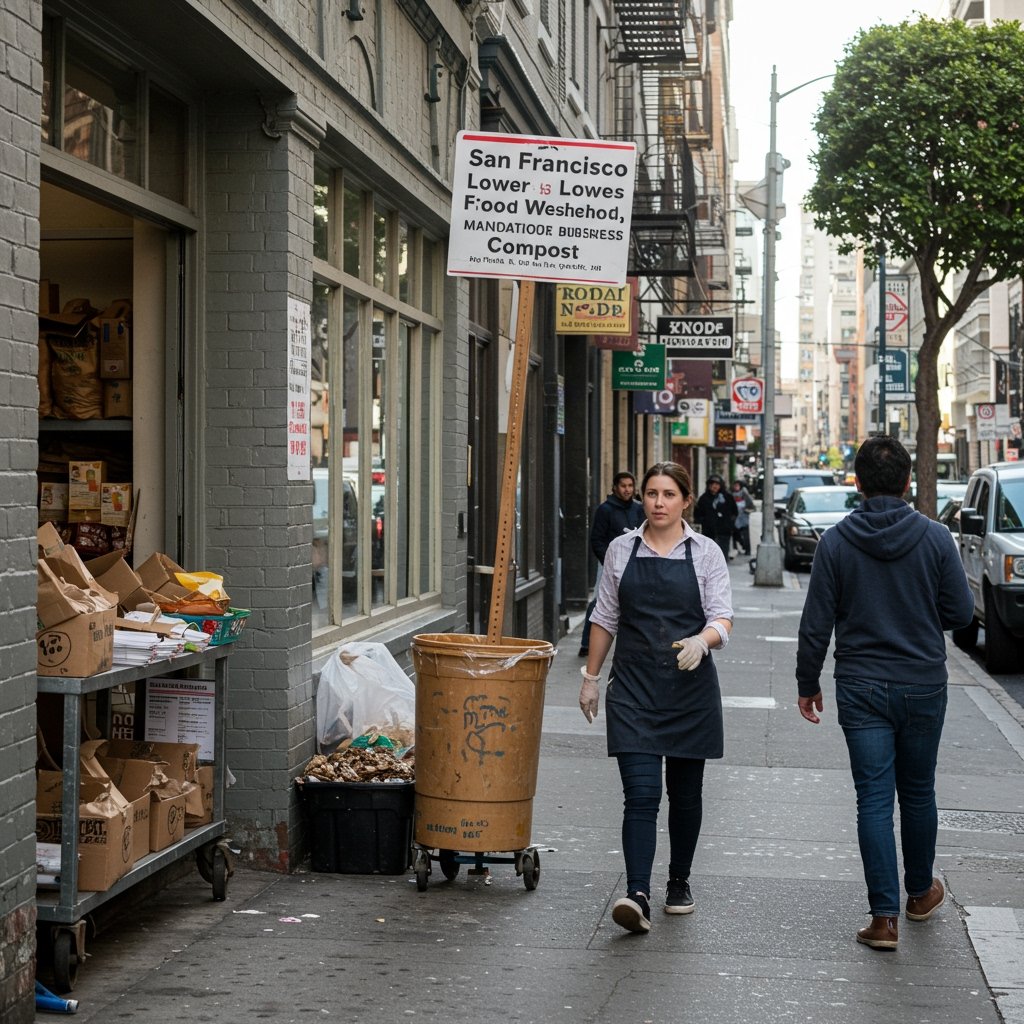San Francisco Supervisors Approve Expanded Food Waste Diversion Ordinance
San Francisco, CA – The San Francisco Board of Supervisors today approved a significant expansion of the city’s mandatory food waste diversion requirements, a move poised to impact a broader range of restaurants and large food service establishments. In a pivotal vote concluding lengthy deliberation, the board passed Ordinance 25-011 by an 8-3 margin, signaling a strengthened commitment to the city’s environmental sustainability goals.
The core of the newly approved legislation dramatically lowers the threshold for mandatory participation in composting programs. Effective July 1, 2025, all businesses operating within San Francisco city limits that generate over 50 pounds of food waste weekly will be required to divert that waste through composting. This represents a substantial reduction from the previous threshold, which mandated participation only for establishments generating 100 pounds or more of food waste per week. The ordinance aims to capture a greater volume of organic material, preventing it from entering landfills where it decomposes anaerobically and produces potent greenhouse gases like methane.
City officials and environmental advocates champion the ordinance as a crucial step towards achieving San Francisco’s zero waste targets and combating climate change. They argue that diverting food waste into compost enriches soil, reduces reliance on chemical fertilizers, and contributes to a circular economy. Proponents highlighted the potential for job creation within the local composting industry and the broader environmental benefits of reducing landfill dependence.
Industry Reacts to New Requirements
While the environmental objectives of the ordinance were generally acknowledged, the decision was met with considerable concern from representatives of the city’s vibrant, yet often financially challenged, restaurant industry. Restaurant industry groups, most notably the Golden Gate Restaurant Association (GGRA), voiced significant apprehension regarding the practical implementation and potential economic burdens imposed by the lower threshold.
The GGRA specifically raised concerns over implementation costs and compliance challenges, particularly for smaller businesses that will now be swept into the mandate under the new 50-pound weekly limit. These establishments, often operating on tighter margins, may face increased expenses related to purchasing appropriate composting bins, establishing collection contracts, and potentially increasing garbage collection frequency if existing service plans are insufficient for managing separated waste streams. Furthermore, there are concerns about the operational adjustments required, including training staff on proper sorting procedures, allocating space within kitchens or storage areas for collection bins, and maintaining hygiene standards.
“While we support the city’s environmental goals, the rapid implementation of this lower threshold poses significant operational and financial challenges for many of our members,” stated a representative from the Golden Gate Restaurant Association during public comment. “Smaller restaurants, delis, and cafes that might not have previously met the 100-pound threshold will now need to navigate new regulations, invest in infrastructure, and train employees, all while still recovering from pandemic impacts and facing rising costs of goods and labor. We hope the city will provide substantial resources and support to help these businesses comply.”
Path to Compliance and Future Outlook
The ordinance, designated as Ordinance 25-011, includes provisions for enforcement, though details regarding specific penalties and grace periods are expected to be further defined as the effective date of July 1, 2025, approaches. The city’s Department of the Environment is anticipated to play a key role in educating affected businesses about the new requirements, providing resources on best practices for food waste separation, and potentially offering assistance or incentives to ease the transition.
The 8-3 vote reflects a strong majority on the Board of Supervisors in favor of accelerating food waste diversion efforts. While the three dissenting votes were not individually detailed in initial reports, they likely stemmed from concerns similar to those articulated by the restaurant industry regarding the feasibility and economic impact of the lowered threshold, particularly for smaller operators.
The expanded mandatory composting program positions San Francisco at the forefront of municipal efforts to manage organic waste responsibly. By requiring a broader segment of the food service sector to participate, the city aims to significantly boost its diversion rates, reduce landfill dependency, and mitigate its environmental footprint. The coming months are expected to see increased dialogue between the city and affected businesses as implementation plans are solidified and support mechanisms are developed to ensure a smooth, albeit potentially challenging, transition to the new requirements effective July 1, 2025.


















